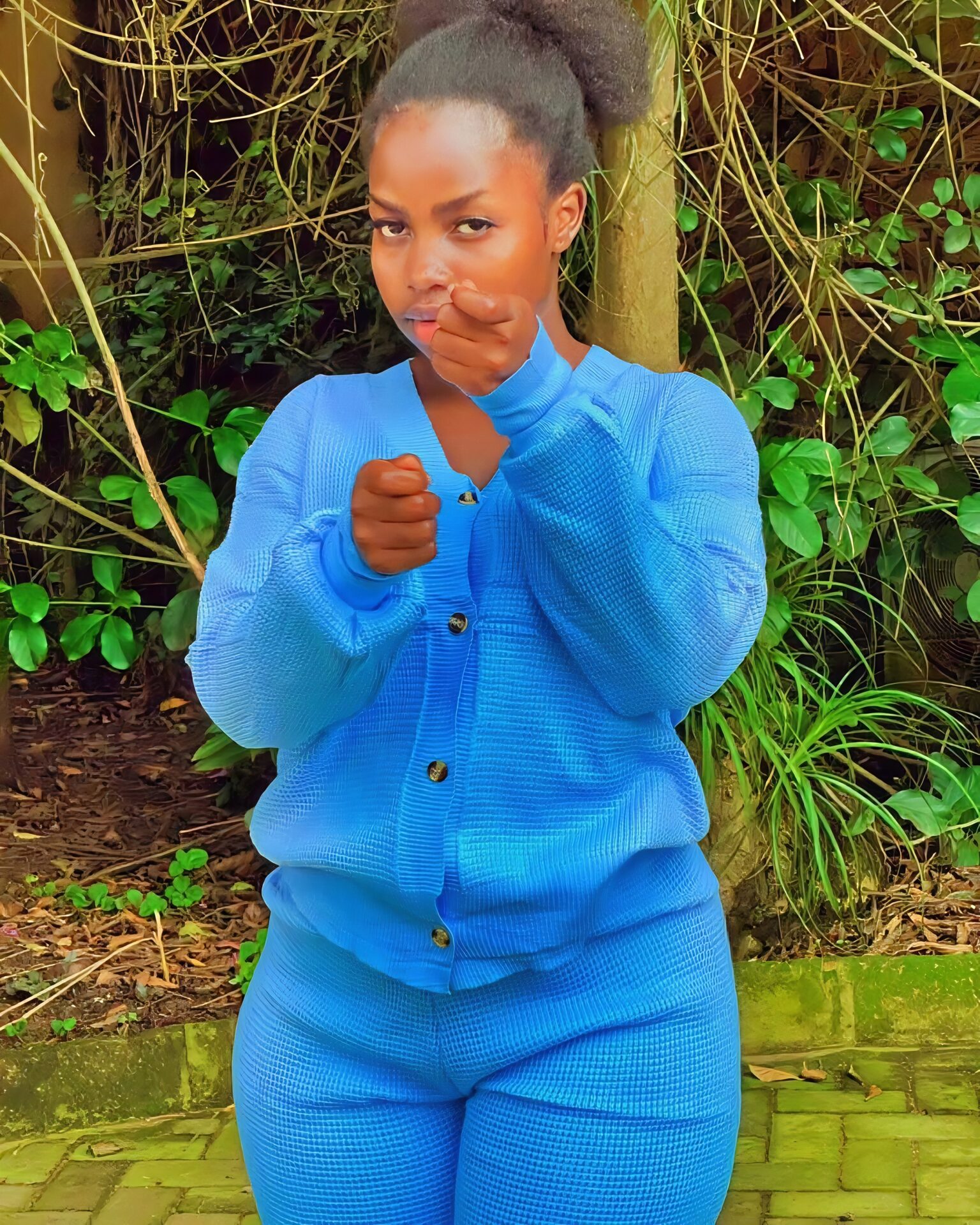Pretty Nicole Musimenta: The Kampala Starlet Defying Gossip and Shining Through Music on YouTube
In the heart of Kampala, where the sun blazed down on bustling streets and motorbike taxis weaved through chaos like restless bees, Nicole Musimenta sat in her modest one-bedroom flat. The walls were adorned with posters of old Nollywood films and faded concert tickets from local gigs she had attended as a teenager. Outside, the cacophony of honking matatus and shouting street vendors filled the humid air, but inside, there was only silence—and Nicole’s unyielding determination.

Pretty Nicole, they called her—a name that stuck not just because of her striking features but also because it carried an ironic weight. Rumours swirled around her like mosquitoes drawn to stagnant water. Some said she had been swept off her feet by a wealthy businessman who bankrolled her dreams; others whispered about an exotic saloon funded by shadowy benefactors. And then there was the Toyota Harrier Kawundo—a gleaming trophy of success or scandal, depending on who you asked.
But today, Nicole wasn’t thinking about Kawundos or conspiracies. She was staring at her laptop screen, watching the final edit of her debut single, Determinant (she insisted it wasn’t a typo). Her voice soared over pulsating beats, raw and defiant, echoing the grit of life in Uganda’s capital. It wasn’t perfect—it couldn’t be—but it was hers.
The interview had gone viral within hours. Clips of Nicole’s impassioned denial played on loop across social media platforms. “Leave me alone,” she’d snapped when pressed about the alleged sugar daddy. “I don’t know anything concerning those allegations. I am still a student pursuing my studies.” Her words dripped with frustration, yet beneath them lay a steely resolve. To many, she came across as both vulnerable and invincible—an enigma wrapped in youthful ambition.
Yet, for all her denials, the rumours persisted. In Kampala, gossip wasn’t merely idle chatter; it was currency. People thrived on stories of rags-to-riches transformations, of hidden affairs between starlets and tycoons. They wanted drama, spectacle—something to distract them from their own struggles. And Nicole, unwittingly, had become the protagonist of this cruel narrative.
Her phone buzzed incessantly. Messages poured in from friends, acquaintances, and strangers alike. Some offered congratulations (“You’re living the dream!”), while others hurled thinly veiled accusations (“Who really paid for that car?”). One particularly scathing comment read: “If she thinks music is her ticket out, good luck. This town eats dreamers alive.”
Nicole laughed bitterly as she scrolled through the notifications. She knew better than anyone how merciless Kampala could be. But she also knew something else: she wasn’t going anywhere.
That evening, Nicole decided to take a walk. The city never truly slept, and neither did she. As she strolled along the dimly lit streets, dodging potholes and stray dogs, she found herself reflecting on the absurdity of it all. Here she was, a 22-year-old university student trying to balance coursework with creative aspirations, and somehow, she’d become public enemy number one.
She passed by the saloon everyone assumed was hers. A sleek sign above the entrance read “Glamour Spot” in bold letters. The irony wasn’t lost on her. She’d visited the place once—for a haircut—and now it was being touted as evidence of her supposed fall from grace. Life, she mused, had a peculiar sense of humour.

As she turned a corner, Nicole spotted a familiar figure leaning against a lamppost. It was Brian, a childhood friend turned occasional thorn in her side. He flashed her a lopsided grin, his teeth glinting under the flickering streetlight.
“So,” he drawled, falling into step beside her, “how does it feel to be famous?”
“I’m not famous,” Nicole retorted, rolling her eyes. “Just misunderstood.”
Brian chuckled. “Misunderstood? Love, you’re the talk of the town. Everyone’s got an opinion about you. Half the campus thinks you’re a gold digger, and the other half wants to be you.”
“Great,” Nicole muttered. “Sounds like I should start charging admission.”
They walked in companionable silence for a while, the hum of the city wrapping around them like a warm blanket. Then Brian spoke again, his tone softer this time. “Seriously though, are you okay? All this attention can’t be easy.”
Nicole hesitated before answering. “It’s exhausting,” she admitted. “But it’s also…motivating. People can say what they want, but at the end of the day, I know who I am. And soon, my music will speak for itself.”
Brian nodded approvingly. “That’s the spirit. Just promise me one thing.”
“What?”
“When you make it big, don’t forget us little people.”
Nicole laughed—a genuine, throaty laugh that startled even herself. For the first time in days, she felt a sliver of hope cutting through the noise.
Days later, Detergent premiered on YouTube. Within hours, the video racked up thousands of views. Comments flooded in, ranging from glowing praise to harsh critiques. Some accused her of using controversy to boost her career, while others hailed her as a breath of fresh air in Uganda’s music scene.

Nicole watched the numbers climb from her bedroom, her heart pounding with equal parts excitement and dread. She knew the road ahead wouldn’t be easy. There would be more rumours, more obstacles, more moments when she questioned whether it was all worth it. But as she listened to her song playing softly in the background, she realized something important: she didn’t need validation from anyone else.
Kampala might try to define her, but Nicole Musimenta was writing her own story—one verse at a time.




